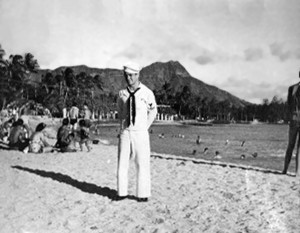My Social Work Career – A Noble Profession
 It all started with this lady. Elizabeth Gurney Fry, born 1780 into a wealthy Quaker family in Norfolk, England. At age 17 she opened a school in her home teaching the poor children of her neighborhood. She married Mr. Fry in 1800 and had 11 children while continuing to do good works. Those good works were mostly reforming the horrible conditions of women prisoners in Newgate prison, London starting in 1813. She and everyone she rallied for the cause made significant changes to the laws governing the English prison system. Men and women were separated, women prisoners could only be overseen by women prison guards, work was assigned to prisoners, living conditions were greatly improved, and a probation system with counseling was instituted to help people make the transition back to outside life easier in finding jobs.
It all started with this lady. Elizabeth Gurney Fry, born 1780 into a wealthy Quaker family in Norfolk, England. At age 17 she opened a school in her home teaching the poor children of her neighborhood. She married Mr. Fry in 1800 and had 11 children while continuing to do good works. Those good works were mostly reforming the horrible conditions of women prisoners in Newgate prison, London starting in 1813. She and everyone she rallied for the cause made significant changes to the laws governing the English prison system. Men and women were separated, women prisoners could only be overseen by women prison guards, work was assigned to prisoners, living conditions were greatly improved, and a probation system with counseling was instituted to help people make the transition back to outside life easier in finding jobs.
When I was a fledgling social worker, fresh out of graduate school in 1967, I was inspired by Jane Addams, another Quaker, founder of Hull House in Chicago, in 1889, a place where European immigrants had a base of support to more easily integrate into our American democratic culture without giving up too much of their own culture. Respect and education were key concepts. Reform of difficult living conditions, instituting child labor laws, and eliminating sweatshops came after the situation had been studied.
She was responsible for instituting the 3 tenets of Social Work as I learned them in school.
- Start where the person is at.
- Assess the person’s abilities within the context of his or her environment.
- Help move that person to a better level of functioning through a combination of social reform and personal empowerment.
My first work experience was with a small Family Service agency in Galveston, Texas. I was one of their student social workers assigned 6 “cases” for 4 months in the dead of winter. It was raining most of the time, flooding the downtown area where I worked. I lived on a $90.00 a month mental health stipend in a motel with kitchenette on the seawall, a concrete levee that was built after the big hurricane of 1900 that everyone still talked about. Gulf of Mexico ocean spray caused my car muffler to rust out twice. Incidentally, I was driving an old pink T Bird convertible that my father bought me used. He said I needed reliable transportation. My first car. I think he really wanted it for himself. It was awkward driving that car into “the projects” of Galveston, not the nicest neighborhood, to take my assigned adolescent client to the doctor to get her birth control pills and give her a better model than her prostitute mother. She liked my T Bird. On balmy days, I would put the top down and we would have a picnic on one of the seawall sheltered areas overlooking the grey Gulf water.
I wanted to help people less fortunate than me. I wanted to be useful, to make my life count for something, to give back to others what I had received so far in my life. Little did I know how much more I would be given and taught by those I was working with throughout my 40 year career.
Let me tell you about one other woman I visited during that initial experience. I will call her Mrs. M. She lived up a flight of steep steps in a tiny garage apartment. That’s all she could afford. She was a tall, middle-aged woman who wore baggy brown stockings and torn house slippers. Her face showed signs of a hard life but her eyes were clear and her heart was generous. She had trouble with a painful hip but insisted on cooking lunch for me and supporting me with a strong arm up her rail less steps when I came to check on her once a week. We chatted as I sat at her table watching her assemble our lunch. She knew I liked hot tea, so she had the kettle on. The used tea bag was perched in a small glass on the table. A cockroach was crawling out of the glass. I ignored it. She brought the boiling water to the table, removed the tea bag from the glass, put it gently into my cup, and poured the water over it. After a few minutes I shared the bag with her. It was the weakest tea I ever had, I prayed that the boiling water would kill any germs from the cockroach, and I was most grateful for her generosity toward me.
Who was helping who?
Universal Truths Keep Recycling
This was my father, Joseph Tepley, standing on the beach in Waikiki with Diamond Head in the background. It was 1944 when he joined the Navy. Soon The Bomb would devastate Nagasaki and Hiroshima. He was on an LST taking supplies to the Philippines when the ship broke down and they had to lay over in Hawaii. I was about 18 months old. I often wonder what it was like for him and my mother to face the cold possibility that he could be killed. He was a small man with a big heart, only 5’3″ tall, and he wanted to apply for the submarine corps because it would give Mom more money since it would be considered hazard pay. Submarines were being sunk in record numbers. She wrote him back telling him that if he did that, he shouldn’t bother to come home. This statement seems a bit odd to me now, but that’s the story I was told. She wanted him to return safely, not give her more money.
He safely returned after his discharge to the loving arms of my mother and to me, though there is a picture of him, still in his uniform, holding me, my mouth wide-open crying in fear because I did not recognize him. I have had many challenges in my life, but am grateful that I did not have to face what they went through.
Each of us has to decide what values we wish to espouse and what truths we wish to believe in. Once we do, we are tested over and over again so that they become who we truly are. They make up our character. Loyalty to one’s family and community, some ideas are worth dying for, and suffering may make one stronger. These are but a few universal truths that keep on recycling through the history of mankind. What are your values?
What It Really Takes To Transform Trauma Into Triumph
In a frozen moment in time, Barry’s adventurous life as a mountain climber and photographer changed forever. In 1963 he was on the first American team to ascend Mount Everest. Later he was the first American to scale a mountain in Antarctica. In 1968 while filming other climbers for his mountain climbing expedition business, his helicopter crashed and he survived with a spinal cord injury that cost him the use of his legs. How did he deal with that? How could he possibly pick up where he left off? His whole life was filled with the pleasure of his strong body pushed to the max, leg muscles at his command walking the rugged terrain up craggy hills and wind-swept mountains. My God! Mount Everest, no less.
Survive, he did. But did he thrive? That came later. He was in his late twenties with the rest of his life in front of him. He told me when I interviewed him for my study on what it takes to thrive through adversity that he was fortunate to have a full life to get back to after his injury. Yes, he used a wheelchair to get around instead of his legs and he had to revamp the way he did his mountaineering business, but he actually became more successful at it. He was determined to prove that he might look like a paraplegic but it wasn’t who he was. He continued to challenge himself by white water kayaking all the rivers of the west.
What Barry epitomizes is what I found to be true from my research. Thrivers have particular personality traits that give them the strength of character needed during times of trauma and long-standing difficulties. They also employ particular strategies refined over a life-time of experience that work well for them in, not only keeping them resilient, but in transforming adversity like a magician changing a warty toad into a handsome prince.
I will write and speak more of these traits and strategies in later posts and future podcasts, but for now, I can give you one practical strategy that Barry used after he got through the initial and required time of wallowing in his grief and whining about his unwelcomed circumstances. Well, maybe two strategies.
The first is to honor your grief, especially during a traumatic event in your life. Trauma is sudden. It changes your life in ways you didn’t expect and didn’t want. Injury, the unexpected death of a loved one, a recent diagnosis of cancer, a tornado wipes out your house and town – these are events we need time to work through out of our initial shock. We shouldn’t rush ourselves out of our sadness and anger, our railing and complaining, our tears and ‘why me’s,’ because we are afraid our friends and family will abandon or try to ‘fix’ us. If they are truly our loving supporters, they will be there for us no matter what. No one who is full of life as Barry was will stay stuck in depression.
He did what you, dear reader, as a fellow thriver would do. He took a problem-solving approach to his life. This is the second strategy I will address for the end of this post. Every problem contains a seed for its solution. Barry had an established business, a customer base, and supportive family, friends and colleagues before he was injured. He was also still young and healthy. He adapted the way he physically did things and became a manager rather than a worker in his business. He took stock of his assets rather than dwelling on his losses, and he put a new plan of action into place based on what he decided he could control.
When we have long-standing, on-going illnesses and adversities like chronic pain, abusive relationships, recovering from alcohol and drug addiction, recovering from war and natural disaster related trauma, the same strategies and personality attributes apply. You cycle through them over and over. Instead of, as the saying goes, when in danger and in doubt run in circles scream and shout, thrivers find another route.
The American Psychological Association: Ten Ways to Build Resilience
- Make connections. Good relationships with close family members, friends, or others are important. Accepting help and support from those who care about you and will listen to you strengthens resilience. Some people find that being active in civic groups, faith-based organizations, or other local groups provides social support and can help with reclaiming hope. Assisting others in their time of need also can benefit the helper.
- Avoid seeing crises as insurmountable problems. You can’t change the fact that highly stressful events happen, but you can change how you interpret and respond to these events. Try looking beyond the present to how future circumstances may be a little better. Note any subtle ways in which you might already feel somewhat better as you deal with difficult situations.
- Accept that change is a part of living. Certain goals may no longer be attainable as a result of adverse situations. Accepting circumstances that cannot be changed can help you focus on circumstances that you can alter.
- Move toward your goals. Develop some realistic goals. Do something regularly – even if it seems like a small accomplishment – that enables you to move toward your goals. Instead of focusing on tasks that seem unachievable, ask yourself, “What’s one thing I know I can accomplish today that helps me move in the direction I want to go?”
- Take decisive actions. Act on adverse situations as much as you can. Take decisive actions, rather than detaching completely from problems and stresses and wishing they would just go away.
- Look for opportunities for self-discovery. People often learn something about themselves and may find that they have grown in some respect as a result of their struggle with loss. Many people who have experienced tragedies and hardship have reported better relationships, greater sense of strength even while feeling vulnerable, increased sense of self-worth, a more developed spirituality, and heightened appreciation for life.
- Nurture a positive view of yourself. Developing confidence in your ability to solve problems and trusting your instincts helps build resilience.
- Keep things in perspective. Even when facing very painful events, try to consider the stressful situation in a broader context and keep a long-term perspective. Avoid blowing the event out of proportion.
- Maintain a hopeful outlook. An optimistic outlook enables you to expect that good things will happen in your life. Try visualizing what you want, rather than worrying about what you fear.
- Take care of yourself. Pay attention to your own needs and feelings. Engage in activities that you enjoy and find relaxing. Exercise regularly. Taking care of yourself helps to keep your mind and body primed to deal with situations that require resilience.
A World Wide Tribe of Thrivers: Who Are They and Why Should They Come Together Here?

A few years ago I attended my 30th college class reunion. Most of us hadn’t seen or talked with each other in that length of time so it was quite a reunion. (That was before email, Facebook, Twitter and other social media helping people keep more in touch.)
One classmate came up to me after our luncheon and leaned into my ear saying she wanted to tell me something she hadn’t told me when we were together in our Sophomore Physical Education class. I was seated in my sporty purple wheelchair and we found a private corner for her to sit down at my eye level in order to tell me this memory.
In the words of Estelle Getty of the TV sitcom, The Golden Girls, “Picture this.” Miami, Florida. 1963. A warm, Spring evening. A small all-girls Catholic College run by the Dominican nuns in full habit. My classmate and I in the deep end of the outdoor swimming pool with our Physical Education teacher standing nearby holding her stop watch ready to clock us treading water. We had to pass this test in order to graduate into our Junior year. We were both nervous. Our teacher yelled, “Start.” I had no use of my legs because of polio but my arms were strong. Though I never treaded water before, I loved to swim and felt at home in the buoyant water. I hung in there for the required 2 minutes, though I was exhausted. My classmate also passed the test.
After reminding me of this event that I had forgotten, she looked me in the eye and said, “While I was flailing my arms and legs I looked over at you and thought, if she can do it, so can I.”
Sometimes we don’t know what a blessing or help we can be to others when they need it the most. I was awe struck and humbled by what an impact my struggles had on her life. I, on the other hand, was just trying to keep my head above water!
The Thriver Living Community is about sharing our stories with each other. Stories of pain and stories of triumph. It’s about honoring those who are just trying to keep their heads above the tsunamis of life. I invite you to join us. Tell us your story. Add your voice of encouragement to our clan of courageous thrivers.
A Prescription for Living Well
I’ve written this blog post several times in my head but it didn’t seem to want to come out through my fingers. Should I tell the truth? Or should I put a positive spin on it? No one wants to hear or read doom and gloom, but ….. the truth is, I don’t feel good. I am not well.
I have two holes in my lung from a bad bacterial infection that I was in treatment for two years ago and was discharged after a year of antibiotics last September free of the bacterium. It left me with labored breathing and a shorter work time. Long naps helped. After a few months recovering from the emotionally depressive effects and gastric upsets of the antibiotics, I felt wonderful. Back to my energetic, enthusiastic self. It lasted for three months during which time I helped my husband through hip replacement surgery, finalized my book publication, and went out of town for my first book signing at a conference of people who had polio, like me, who are getting older, yet living well.
You would think that being surrounded by like-minded people, in a positive, up-beat atmosphere, with lots of recognition for my new book, my baby, presenting her to the world after fourteen long years of gestation, would keep me healthy. But no. It was not to be. I got tired. I overdid it. Even good stress was not good for me. I was on a high when I got back home for a couple weeks, then BAM! It hit me again. Coughing up gunk, non-stop, chills, flannel pajamas and a down comforter couldn’t warm me, achy muscles, some of which were from coughing, and pure disgust. I’ve got things to do I told myself. I can’t be sick again.
But here I am, one month later, and still not well. My body is slowly recovering from the achy part of whatever I got, but I’m still coughing and wheezy. Will I never feel better than this? Will this be the rest of my life? Afraid to leave town, to exert myself?
Then I think about the role of illness in our lives. That’s a whole other blog topic. Everyone gets sick and some of us are sick a lot. Why do we fight being ill? It’s such a common experience. I must have spent one third of my life being ill with one thing or another. We spend tons of money and time on wellness programs and remedies to keep us healthy. It is amazing how much the human body can repair itself. But why are we so ashamed of being sick? It’s as if we have failed in some way. All the cards I get, say Get Well Soon. In other words, don’t linger in the illness, or you will be thought of as a malingerer, someone who craves attention. One of my sympathetic friends sent me a card that said “Get well at a leisurely pace, depending on how much you enjoy watching movies and lying around.” I like that. It’s more authentic. Maybe that’s the role of illness. It gives us time to reflect, to prioritize, and to redecide what is really important in life.
So my prescription for living well is:
- Be kind to yourself, ill or well.
- Find someone who makes you laugh.
- Read the lives of famous people who did great things despite and because of their illnesses.
- Tell the truth to yourself and others.
- Read my book.



